 iRedMail
// Document Index
iRedMail
// Document IndexThis tutorial is available in other languages
简体中文 /
Warning
iRedMail is designed to be deployed on a FRESH server system, which means your server does NOT have mail related components installed, e.g. MySQL, OpenLDAP, Postfix, Dovecot, Amavisd, etc. iRedMail will install and configure them for you automatically. Otherwise it may override your existing files/configurations althought it will backup files before modifying, and it may not be working as expected.
To install iRedMail on RHEL or CentOS Linux, you need:
2 GB of memory is recommended for a low traffic production server.
Spam/Virus scanning will take most system resource.No matter your server is a testing machine or production server, it's strongly recommended to set a fully qualified domain name (FQDN) hostname.
Enter command hostname -f to view the current hostname:
$ hostname -f
mx.example.com
On RHEL/CentOS/Scientific Linux, hostname is set in two files:
/etc/sysconfig/network:HOSTNAME=mx.example.com
For RHEL/CentOS/Scientific Linux 7, hostname is defined in /etc/hostname.
mx.example.com
/etc/hosts: hostname <=> IP address mapping. Warning: List the FQDN hostname as first item.127.0.0.1 mx.example.com mx localhost localhost.localdomain
Verify the FQDN hostname. If it wasn't changed, please reboot server to make it work.
$ hostname -f
mx.example.com
iRedMail doesn't work with SELinux, so please disable it by setting below
value in its config file /etc/selinux/config. After server reboot, SELinux
will be completely disabled.
SELINUX=disabled
If you prefer to let SELinux prints warnings instead of enforcing, you can set below value instead:
SELINUX=permissive
Disable it immediately without rebooting your server.
# setenforce 0
For CentOS or Scientific Linux, please enable CentOS/Scientific official yum repositories, and DISABLE all third-party yum repositories to avoid package conflict.
For Red Hat Enterprise Linux, please enable Red Hat Network to install packages, or create a local yum repository with DVD/CD ISO images.
NOTE: Since official RHEL/CentOS and EPEL repositories don't have all required packages with the needed features, iRedMail team has built these packages and made them available trough the iRedMail repository enabled by default at installation time. You can view all available packages here, please check
READMEandChangeLogfiles under each directory for more details. Source RPMs (srpm) used by iRedMail team to build the binary packages are available here.
Visit Download page to get the latest stable release of iRedMail.
Upload iRedMail to your mail server via ftp or scp or whatever method you
can use, login to the server to install iRedMail. We assume you uploaded
it to /root/iRedMail-x.y.z.tar.bz2 (replace x.y.z by the real version number).
Uncompress iRedMail tarball:
# cd /root/
# tar xjf iRedMail-x.y.z.tar.bz2
It's now ready to start iRedMail installer, it will ask you several simple questions, that's all required to setup a full-featured mail server.
# cd /root/iRedMail-x.y.z/
# bash iRedMail.sh
Note to Chinese Users
Our domain name iredmail.org has been blocked in mainland China for
years (since Jun 04, 2011), please run command below to finish the
installation:
IREDMAIL_MIRROR='http://42.159.241.31' bash iRedMail.sh
Additional variables are:
IREDMAIL_EPEL_MIRROR='http://mirrors.aliyun.com/epel'SOGO_PKG_MIRROR='http://42.159.241.31/SOGo'
/var/vmail/.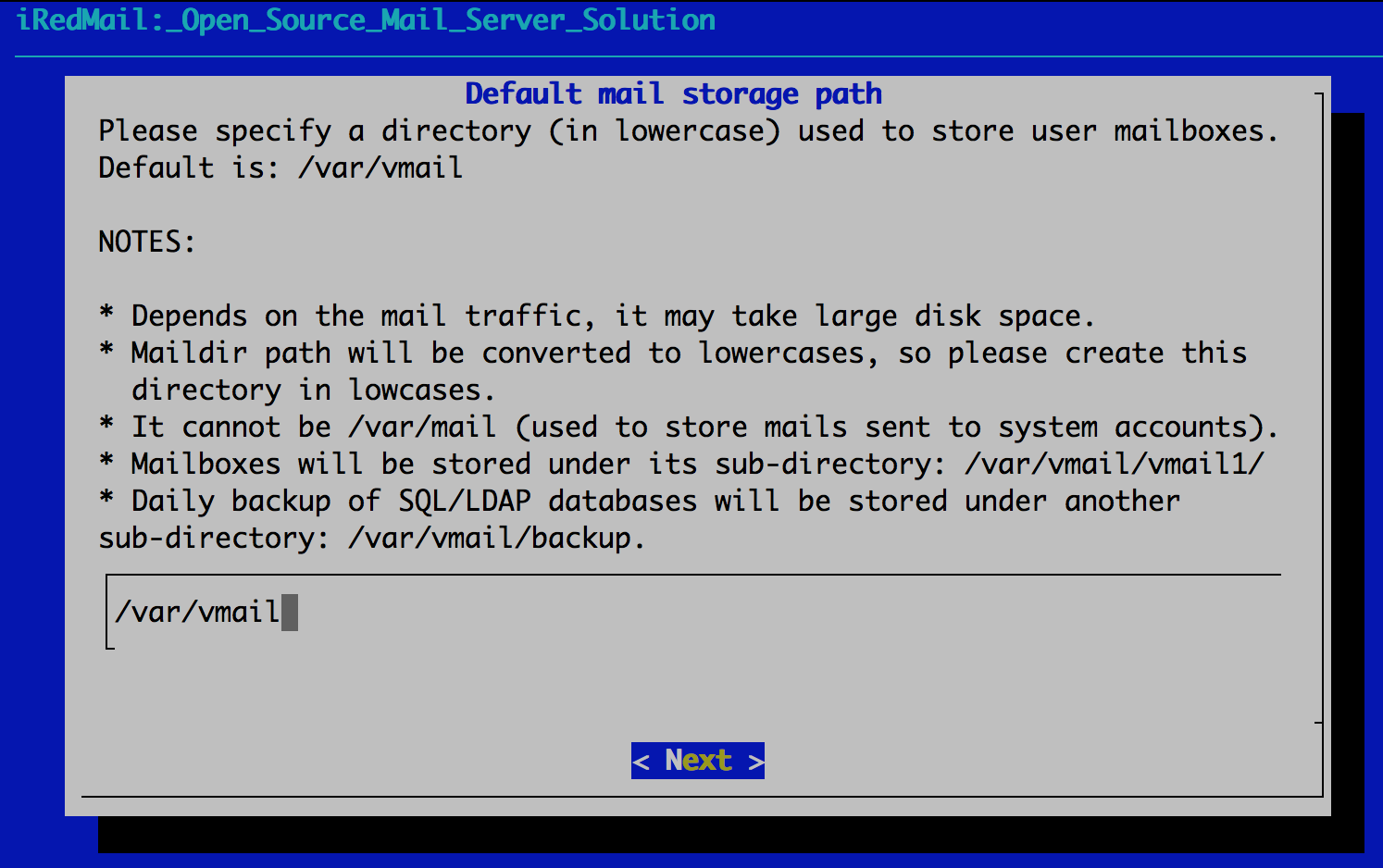
Note
There's no big difference between available backends, so it's strongly recommended to choose the one you're familiar with for easier management and maintenance after installation.
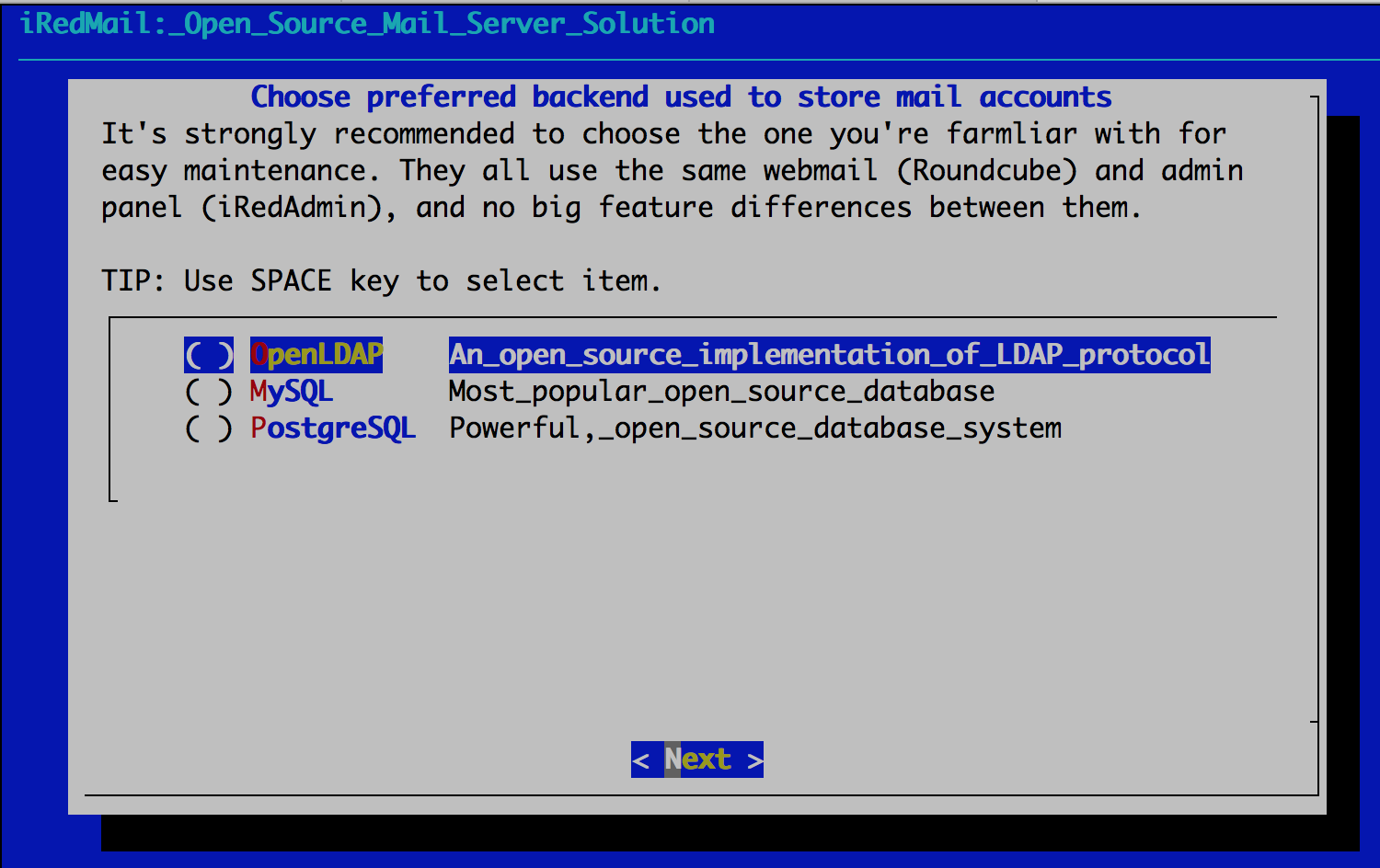
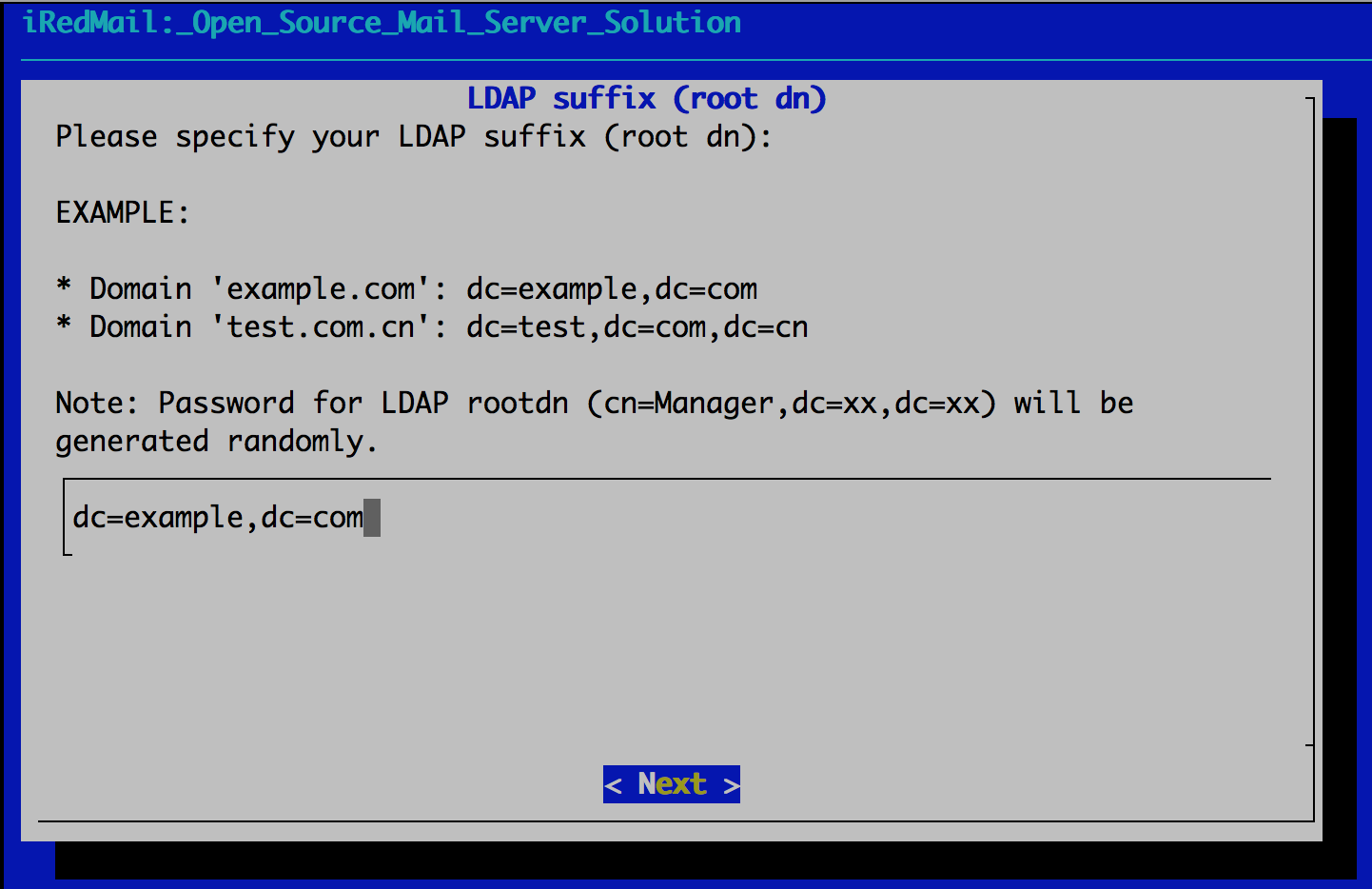
To MySQL/MariaDB/PostgreSQL users
If you choose to store mail accounts in MySQL/MariaDB/PostgreSQL, iRedMail
installer will generate a random, strong password for you. You can find it
in file iRedMail.tips.
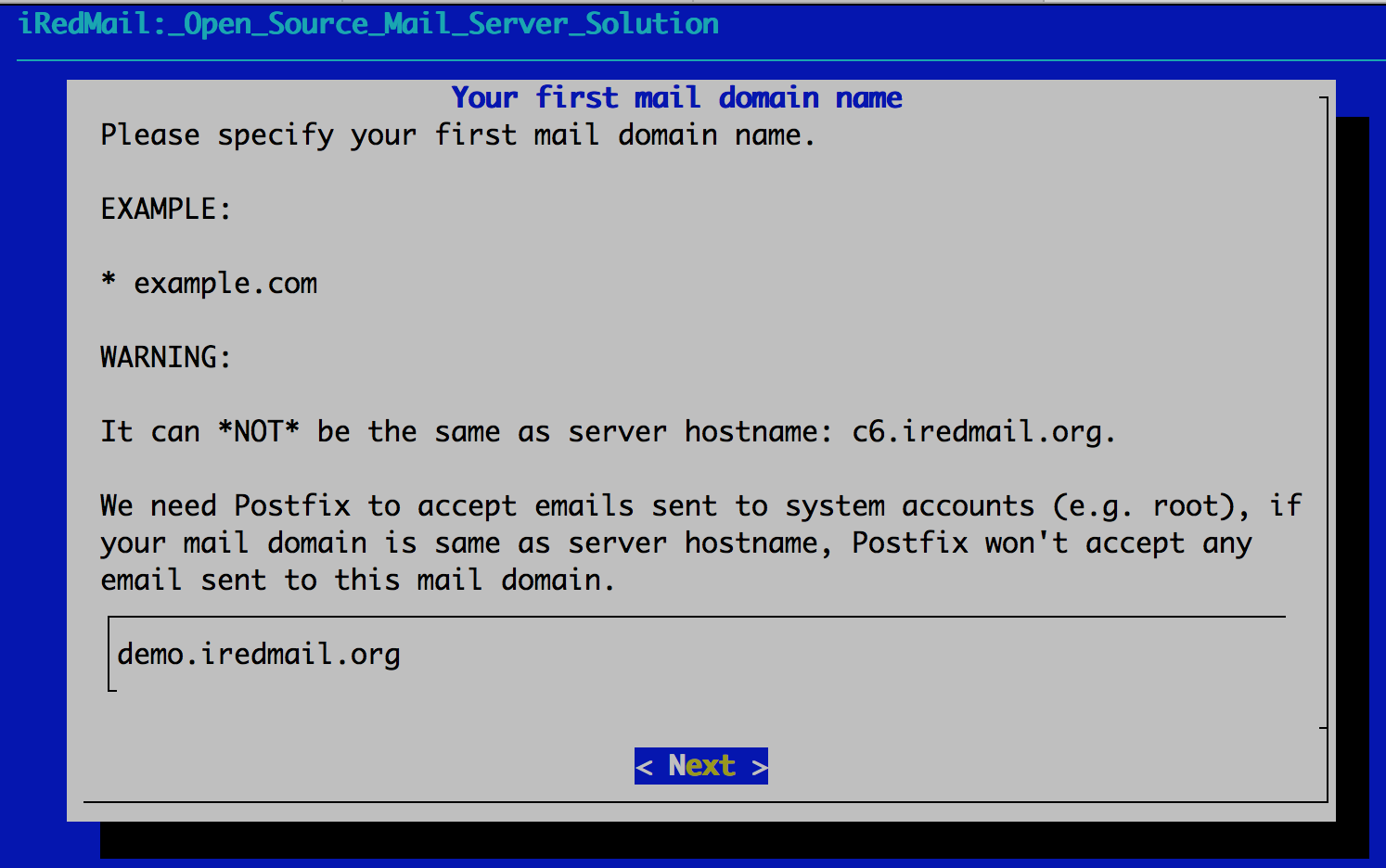
Note: This account is an admin account and a mail user. That means you can login to webmail and admin panel (iRedAdmin) with this account, login username is full email address.
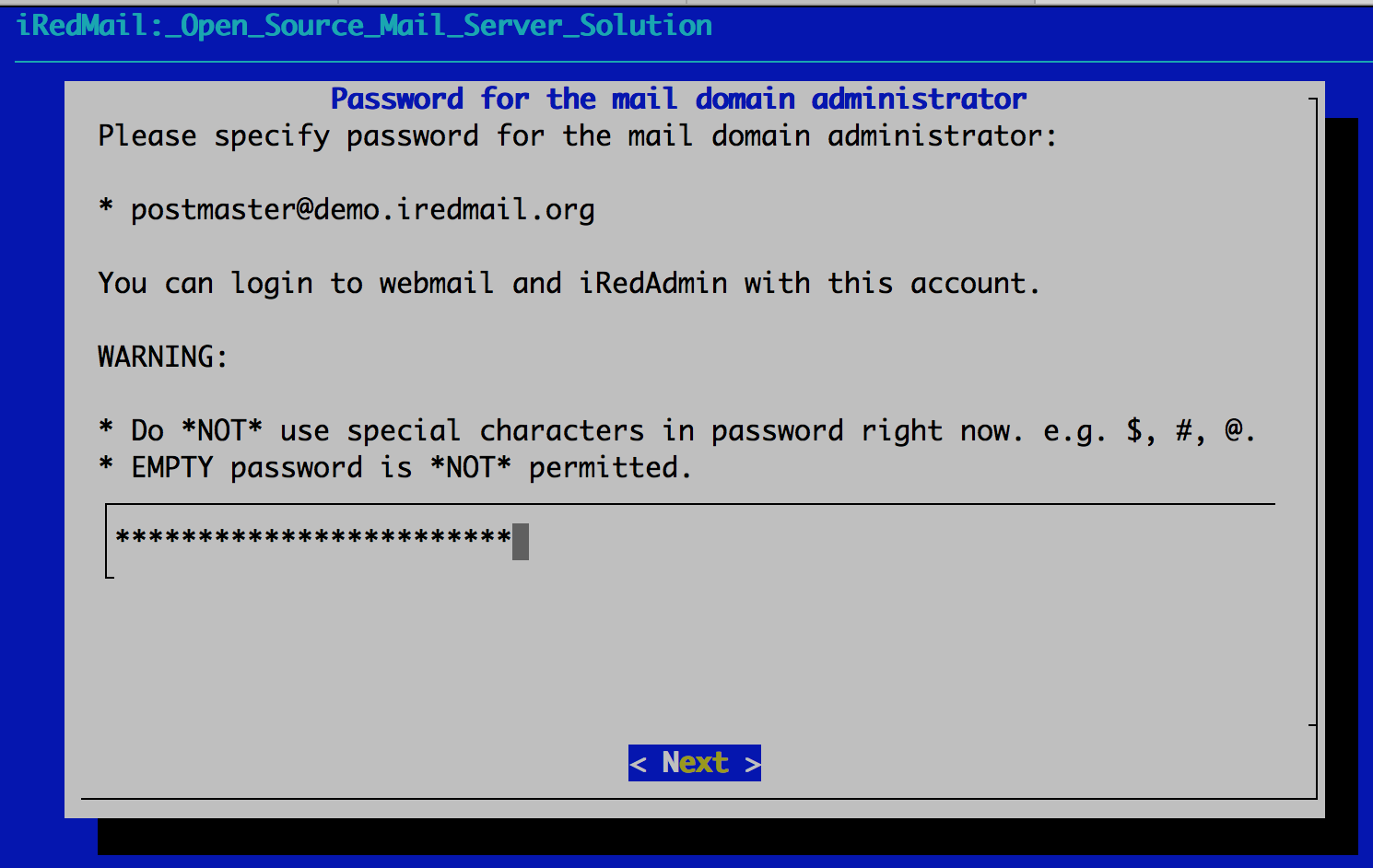
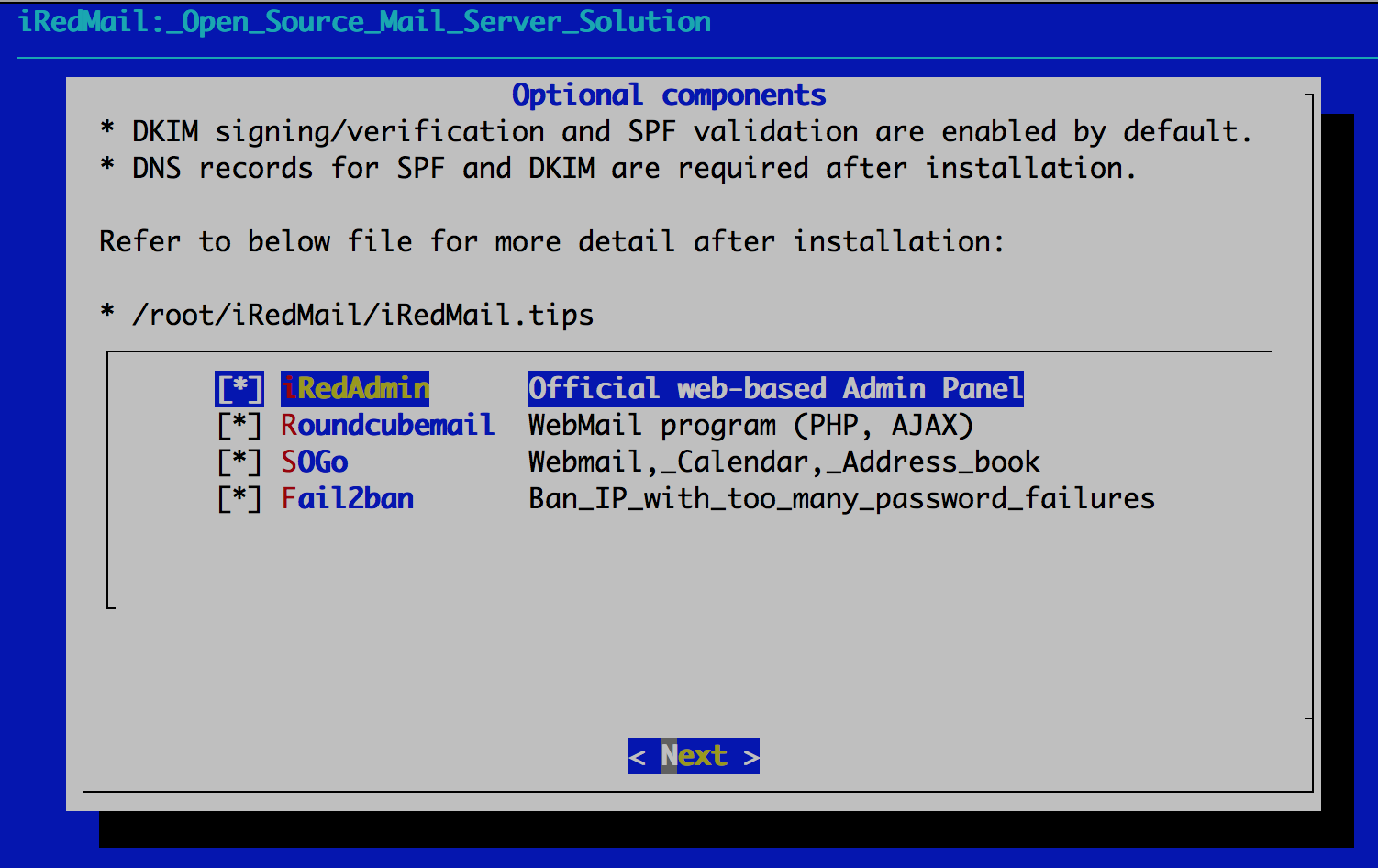
After answered above questions, iRedMail installer will ask you to review and
confirm to start installation. It will install and configure required packages
automatically. Type y or Y and press Enter to start.

The weakest part of a mail server is user's weak password. Spammers don't want to hack your server, they just want to send spam from your server. Please ALWAYS ALWAYS ALWAYS force users to use a strong password.
Read file /root/iRedMail-x.y.z/iRedMail.tips first, it contains:
After installation successfully completed, you can access web-based programs
if you choose to install them. Replace your_server below by your real server
hostname or IP address.
?config=smtp for SMTP log)All documents are available in BitBucket repository, and published under Creative Commons license. You can download the latest version for offline reading. If you found something wrong, please do contact us to fix it.